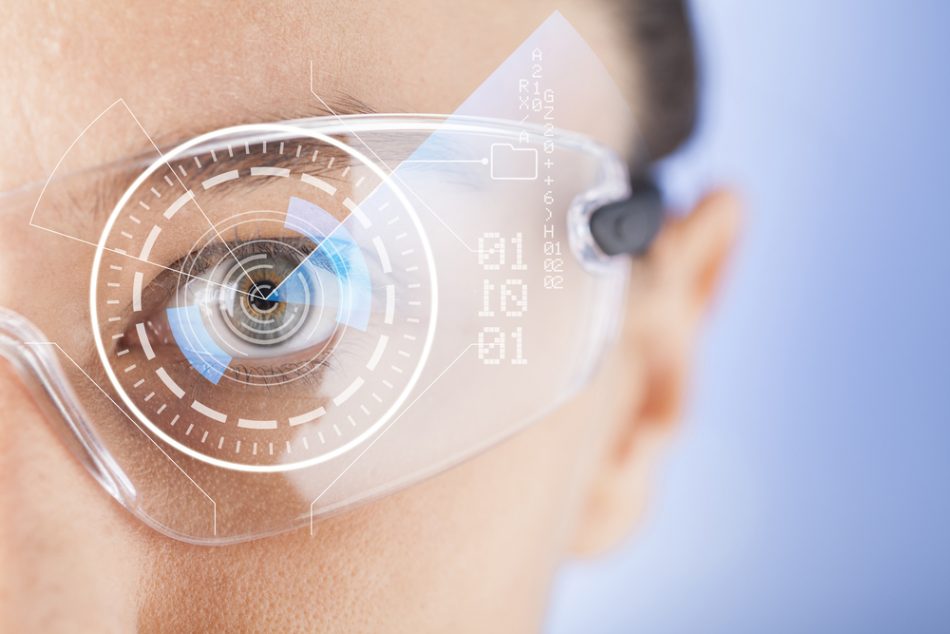Will Google Be Able to Trademark the Word Glass?

Google’s rollout of one of the first mainstream wearable technology devices – Google Glass – made a big splash in the technology sector. Generally, in the media and everyday conversation alike, it was referred to by that full name: Google Glass. Google, however, has made a contention, by filing an a trademark application through the United States Patent and Trademark Office, that the word “Glass,” alone, should also be protected to be used to refer to their technology.
Google’s trademark application for the word “Glass” has been in progress for nearly a year. The reason for the delay beyond the typical six to eight month waiting period? The application for “Glass” met, at various points in the process, with opposition and questioning not only from the United States Patent and Trademark Office, but also from two other companies. However, Google appears to have resolved the issue with the other two businesses, leaving only the approval of the USPTO in the way of a successful trademark registration.
Let’s take a look at some of the key factors of trademark law that play into Google’s contention that their trademark application for “Glass” should be successful, and some of the reasons for the delay.
Trademark law is predicated on the need to prevent confusion among similar products. At the time that Google submitted its application for Glass, two companies already held similar trademarks in the technology sector – not for the word “Glass,” alone, but for software featuring the word Glass. Since these marks had been filed and approved prior to Google’s application, the United States Patent & Trademark Office viewed them as having priority of usage for the term, and delayed Google’s application on the grounds that the word “Glass” could be mistaken to have a connection to these two pre-existing marks.
Google, for its part, held that the two pre-existing marks should be cancelled, most likely for a lapse in use in commerce. The issue of priority becomes moot if a mark is not in active use. Eventually, the three parties came to an agreement separately from the USPTO, with the other two companies apparently ceding ownership of their trademarks to Google.
A secondary concern of the USPTO is the generic nature of the word “Glass.” In the vast majority of cases, a word or phrase that can be considered “merely descriptive” will be turned down by the USPTO – its not distinctive enough to differentiate a product or service from generally used terms that should be available to describe that product or service. “Glass,” for instance, would probably not be allowed to name a window or a mirror company. It’s a term that needs to be available to other companies in the same industry to accurately describe their product offering.
In the hierarchy of preferred trademarks, according to the USPTO, “unrelated” words or phrases are preferable to “merely descriptive” ones. Google contends that in the context of Google Glass, the word “Glass” is an “unrelated” term. Their reasoning: the product is not actually made up of glass at all, but rather metal and plastic. Google is implicitly contending that despite the resemblance of the product to a pair of eyeglasses, it has nothing to do with its function as a technology device – they aren’t corrective lenses, or protective in the vein of sunglasses. They two divisions of products, according to Google, are completely separate – one is technology, the other medical.
Furthermore, Google is supporting its right to trademark “Glass” by asserting that the word has attained a unique connection with its product. When you say “Glass” while referring to wearable technology, according to this contention, you would think of another company or product – you’d think of Google. Although Google’s trademark application has not yet been completed, this is a similar principle to the existence of the USPTO Supplemental Register, where “Glass” may eventually end up. If a mark goes on the Supplemental Register and stays there for five years without a successful trademark challenge, it can then move to the principal register, meaning that the trademark owner receives full protection.
Keep in mind that trademark registration does not preclude usage of a mark, or even certain protections. By establishing and using the mark “Glass,” alone, with the distinctive font that Google has adopted for the product, Google has already achieved a step in establishing priority for trademark protection, even without registration. If another business came along with a similar font and name, Google could conceivably challenge them on the basis of prior usage, regardless of the outcome of its application. But it would be preferable for Google to achieve a successful trademark registration to give it the presumption of national validity on the trademark.
Do you need assistance with a trademark matter?
Contact an Attorney Today